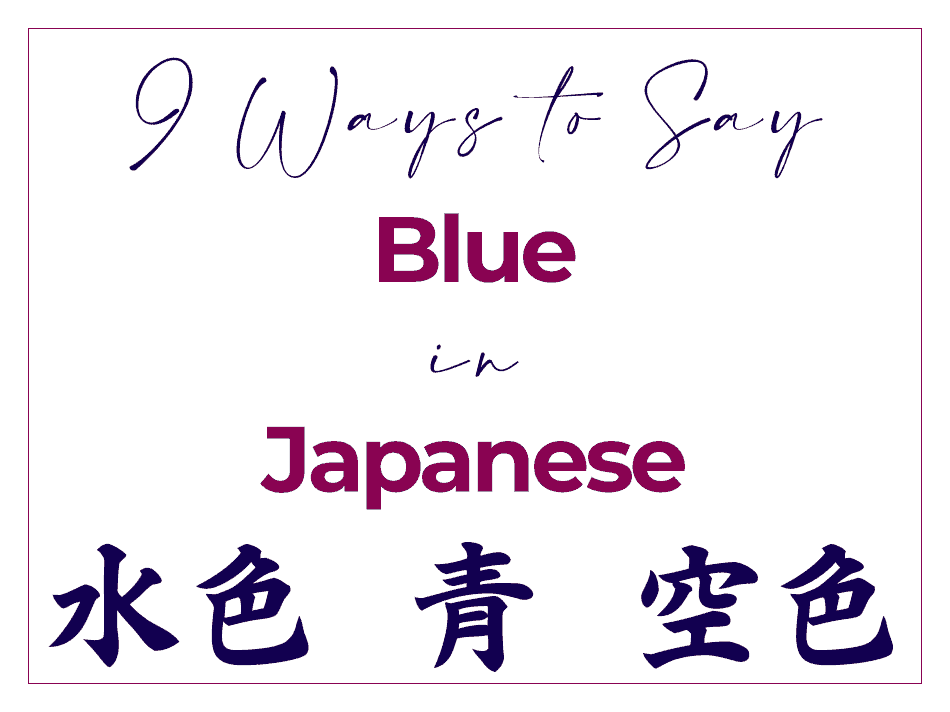The color “blue” is next on our quest to learn all the basic colors in Japanese. In this post, I will show you 9 common ways to say “blue” in Japanese including the kanji, hiragana, and English translations of each word. Let’s start with the most basic Japanese words for “blue” and the “color blue“.
Ao (青, あお) is the basic Japanese word and kanji for the color blue, while aoi (青い, あおい) is a Japanese adjective that translates as “blue”. As an alternative, the word aoiro (青色, あおいろ) and the English loanword buruu (ブルー) can be used to say “blue” in Japanese. However, ao (青) can also mean “green”.
Below you will find an in-depth explanation of the 4 words mentioned above and the remaining 5 ways that can be used to say “blue“, “light blue“, “navy blue“, “ice blue“, and “sky blue” in Japanese. At the end of this post, I have attached a table where you can look up related words such as “blueberry“, “blue sky“, “blue dragon“, and “blue eyes“.
How to Say “Blue” in Japanese
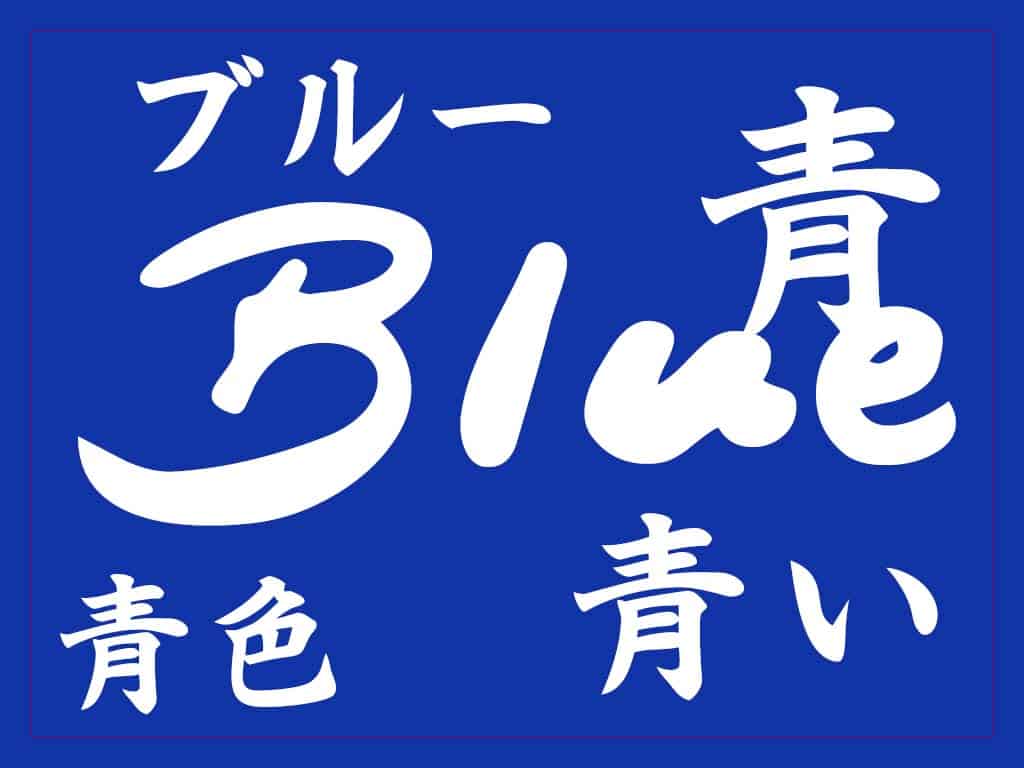
- ao – 青
- aoi – 青い
- aoiro – 青色
- buruu – ブルー
- mizuiro – 水色
- koniro – 紺色
- noukan – 濃紺
- tanseishoku – 淡青色
- sorairo – 空色
1. Ao – Basic Word & Kanji for the Color “Blue” in Japanese
Ao (青, あお) is the basic Japanese noun and Japanese kanji for “blue” and is best translated as the “color blue“. The word is used when talking about colors in general and refers to the color blue or in other words the color of water or the sky.
However, ao (青) is also the Japanese word for “green” and the “color green” because in the past the Japanese only used 4 different color words: Kuro (黒, くろ) for the color “black“, shiro (白, しろ) for the color “white“, aka (赤, あか) for the color “red“, and ao (青, あお) for the colors “blue“, “green“, and “purple“.
Even today, the traditional word ao (青) is used for things that are green such as aoringo (青りんご) which is the Japanese word for “green apple” and aoshingou (青信号) which is the Japanese word for “green traffic light“.
ao
青
blue
the color blue
green
2. Aoi – Japanese Adjective That Translates as “Blue”
Aoi (青い, あおい) is an i-adjective and the most frequently used word for “blue” or to describe that something “is blue” in Japanese. So when saying things such as “water is blue” or “my blue shoes” you will most commonly hear the word aoi (青い).
Just like the noun ao (青), the adjective aoi (青い) can also mean “green“.
aoi
青い
blue
azure
green
3. Aoiro – Alternative Way to Say “Blue” in Japanese
Aoiro (青色, あおいろ), which can also be read as seishoku (青色, せいしょく), is an alternative Japanese word that you can use to say “blue”. Generally speaking, it is a noun that translates as “blue” or the “color blue”, but it can also be turned into an adjective by adding the particle no (の).
aoiro
青色
blueseishoku
青色
blue
4. Buruu – English Loanword Meaning “Blue”
Buruu (ブルー) is an English loanword that is used in Japanese for “blue” or the “color blue“. However, just like its English sibling, the word can also mean “being sad” or “being down“. Native speakers most commonly use it in names or other loanwords like blueberry (buruu berii, ブルーベリー), for example.
buruu
ブルー
blue
5. Mizuiro – Japanese Word for “Light Blue” or “Aqua”
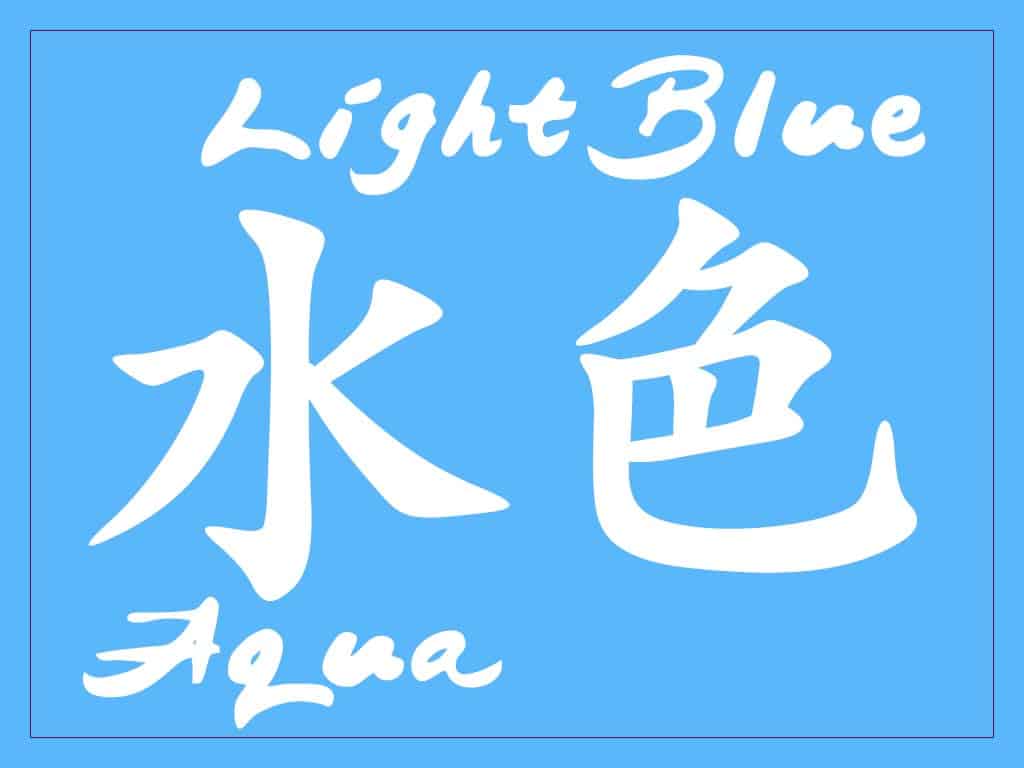
Mizuiro (水色, みずいろ) is the Japanese word for “light blue“, “aqua“, or “pale blue“. The word consists of mizu (水), the Japanese word and kanji for water, and iro (色), the Japanese word and kanji for “color“. So it doesn’t only resemble the color aqua but literally translates as the “color of water“.
mizuiro
水色
light blue
aqua
pale blue
6. Koniro – Japanese Word For “Navy Blue” or “Deep Blue”
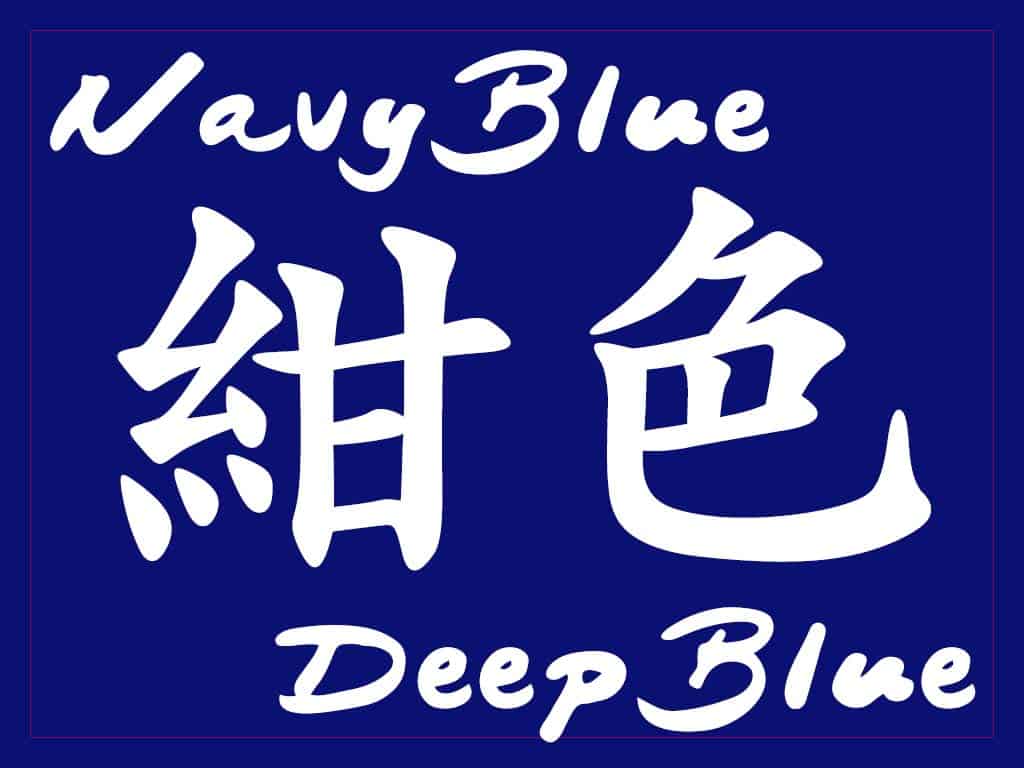
Koniro (紺色, こんいろ), sometimes also abbreviated to just kon (紺, こん), means “navy blue” or “deep blue” in Japanese. It is used for shades of blue that are a lot darker or more saturated than the color of water or what is considered normal blue.
koniro
紺色
deep blue
navy blue
7. Noukon – Translates as Extremely “Dark Navy Blue”
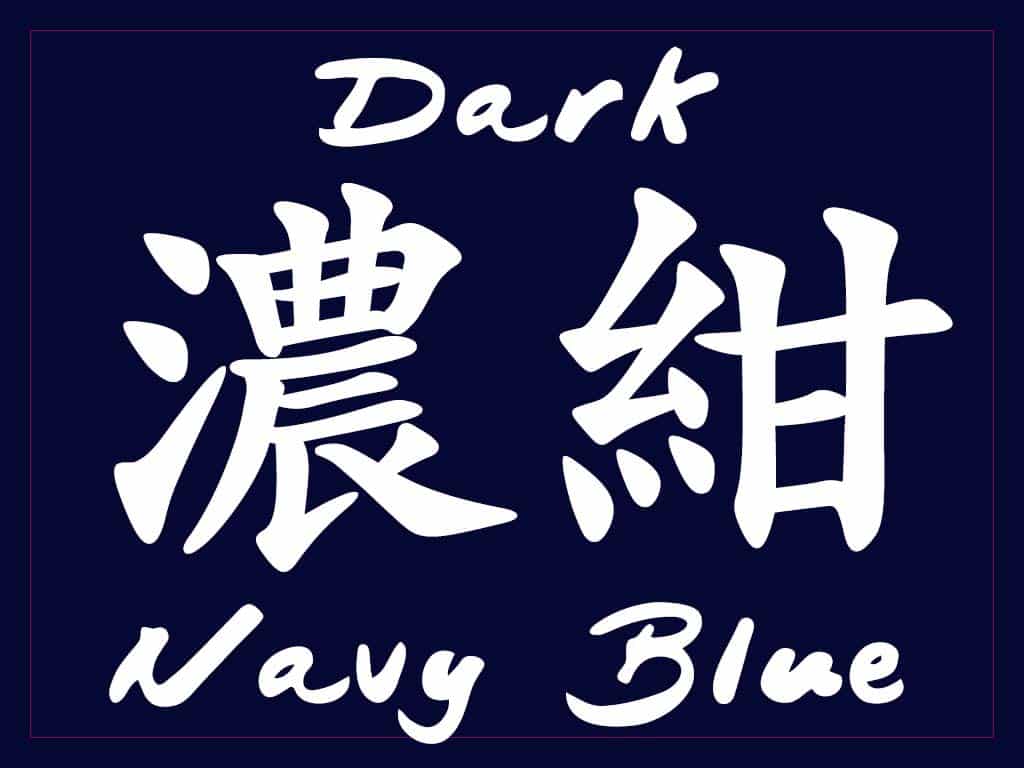
The Japanese word noukon (濃紺, のうこん) translates as “dark blue” or “dark navy blue” and is used for extremely dark shades of navy blue. The ones that are actually closer to the color black than blue.
noukon
濃紺
dark navy blue
extremely dark blue
8. Tanseishoku – Japanese Word For “Ice Blue”
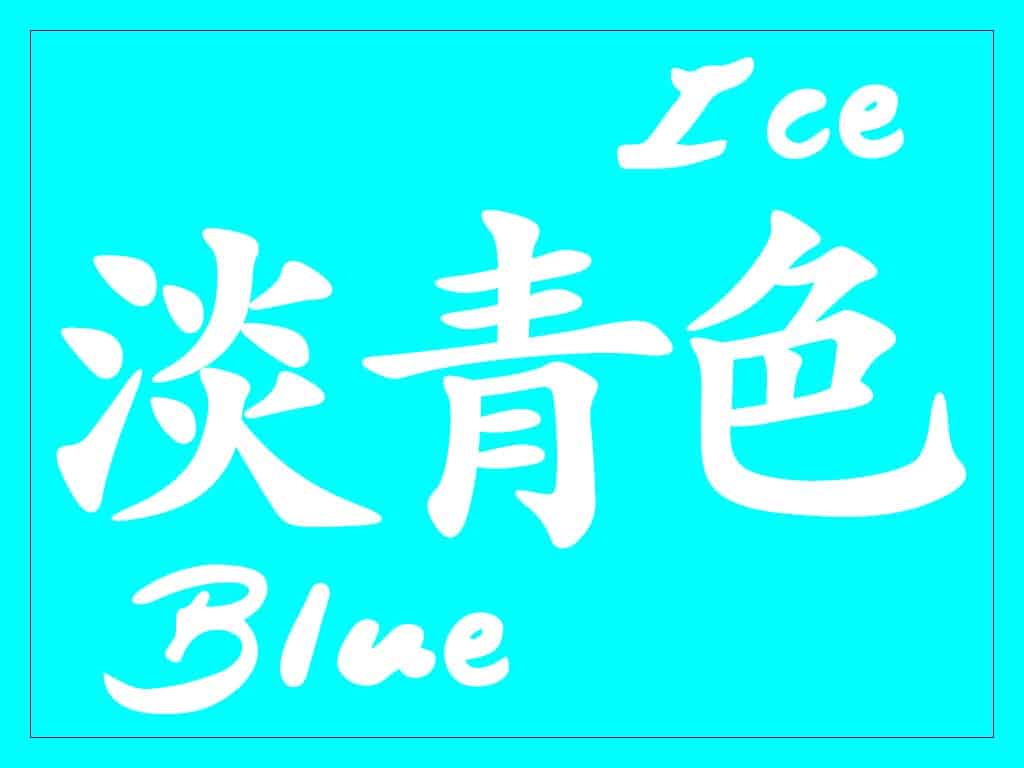
Tanseishoku (淡青色, たんせいしょく) is the most appropriate word to say “ice blue” in Japanese, but can also be translated as “(rare) light blue“, “sky blue“, or “powder blue“. The first two kanji, tansei (淡青), which can also be read as usuao (淡青) mean “light blue” or “pale blue“.
tanseishoku
淡青色
light blue
ice blue
sky blue
powder blue
9. Sorairo – Japanese Word for “Sky Blue”
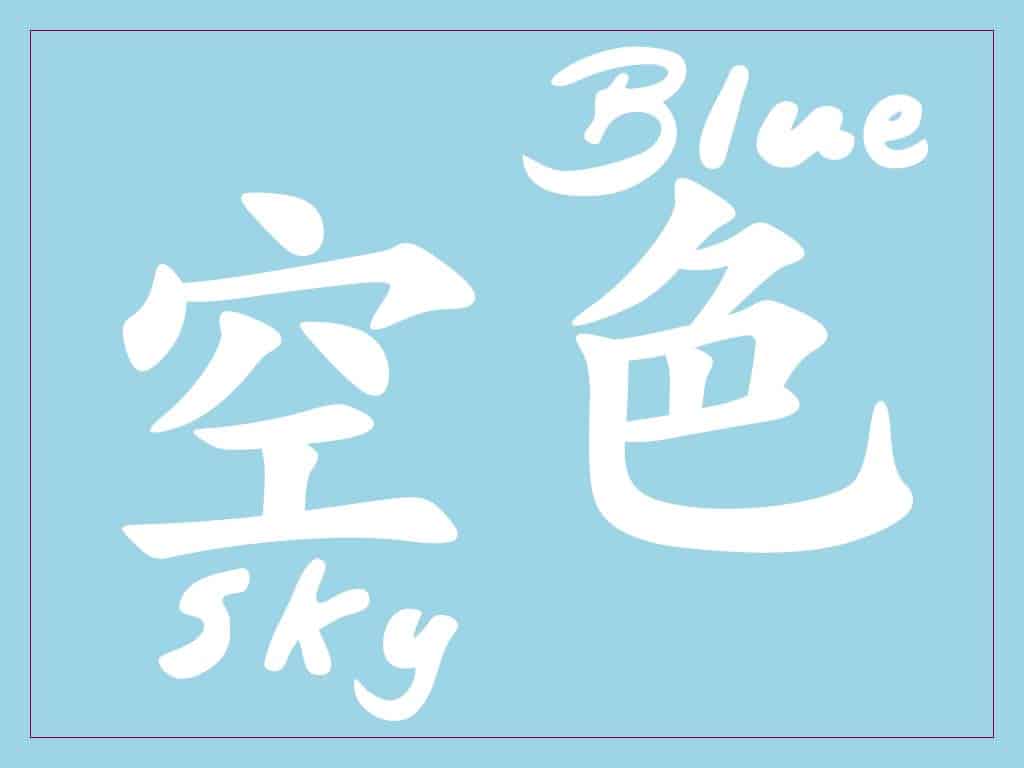
Sorairo (空色, そらいろ) is the Japanese word for “sky blue“. It literally consists of the Japanese word for “sky”, which is sora (空), and the Japanese word for “color“, which is iro (色). So literally translated it means “sky color” or the “color of the sky“.
sorairo
空色
sky blue
Useful Japanese Words Containing the Word “Blue”
| blueberry | buruu berii | ブルーベリー |
| blue sky | aozora | 青空 |
| bluetooth | buruu twuusu | ブルートゥース |
| blue eyes | aoime hekigan | 青い目 碧眼 |
| blue bird | aoi tori buruu baado | 青い鳥 ブルーバード |
| blue dragon | seiryuu | 青龍 青竜 |
| blue moon | aoi tsuki buruu muun | 青い月 ブルームーン |
| blue fire | aoi honoo | 青い炎 |
| bluefin tuna (Pacific bluefin tuna) | kuro maguro | クロマグロ 黒鮪 |


